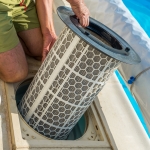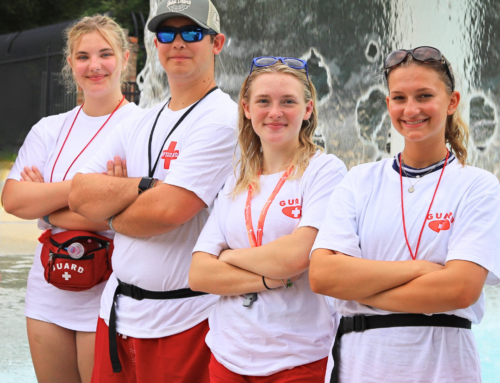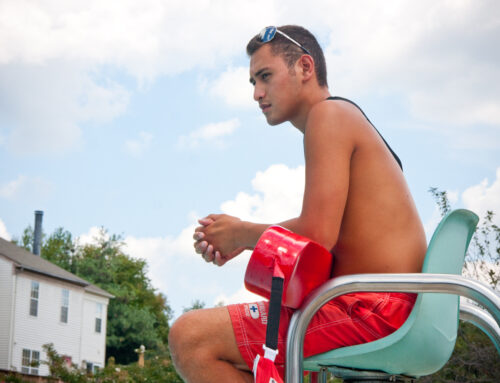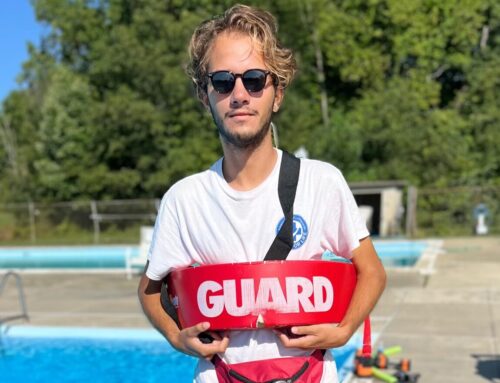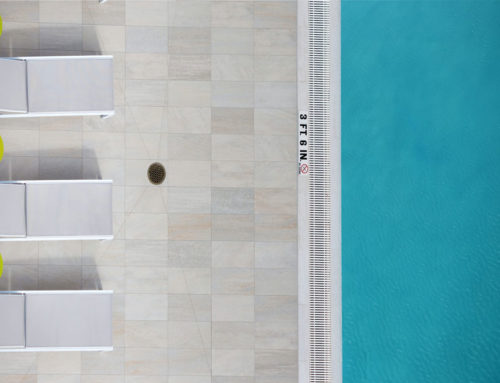Make Smart Hires
Lifeguards are inarguably your most important staffers. After all, they’re the ones you count on to keep swimmers safe and to prevent potential tragedy. Lifeguards must be trained, certified, and trustworthy, and you’ll need an extensive roster of guards since most pools are open seven days a week, up to 12 hours a day.
Finding good lifeguards isn’t easy. Advertise widely in your community and on your website, allowing applicants to apply online or in person. Be sure to ask applicants about their availability (some college students have to return to school midway through August, which could leave you understaffed before the end of summer). Once your hires are made, do what you can to cultivate an esprit de corps: Consider hosting an afterhours lifeguard get together once a month, for example, or offer occasional snack bar vouchers for meals. Lifeguard loyalty will pay off in the long run, since they’ll be more likely to stay with you all summer and even return for employment next year.
To save yourself from the headache of advertising for and hiring lifeguards, work with a professional pool management company that offers lifeguard services. A management company will provide the training and supervision your lifeguards need to ensure a healthy swimming environment all summer long.
Prepare Staff for a “Critical Incident”
While you’ll probably get through the entire summer without mishap, it’s important to prepare your staff for potential emergencies. According to Athletic Business, a “critical incident” can include anything that requires a victim to receive CPR, spinal mobilization, or hospitalization. Such incidents happen as the result of a fall, diving injury, hypoxia (insufficient oxygen supply to body tissue), or anoxia (complete lack of oxygen in the body) brought on by prolonged underwater breath-holding.
Take steps now to develop an emergency plan that outlines policies and procedures, including which staffers should be responsible for which tasks in the event of a critical incident. And make sure everyone knows the location and proper use of on-site emergency equipment — such as first-aid kits, fire extinguishers, and automated external defibrillators.
Ensure Security
It’s crucial to keep would-be swimmers out of the water after hours, so be sure to closely inspect your fencing and gates. According to Aquatics International, fencing rails should be no more than four inches apart. (Use a tape measure to check, since even a quarter inch of extra space could make it possible for a small child to slip through.) Do a visual survey of your perimeter to make sure there are no boxes or benches near the fence that would make it easier for people to climb the fence. To ensure pool compliance, check with local safety regulations regarding commercial pool barriers.
Also be sure that the gates to your pool are self-latching, self-closing, and that they open outward. The latches should be placed out of reach of children.
Test and Fix Equipment
Start by taking inventory of your safety equipment. If items show signs of wear, replace them immediately. Items like automated external defibrillators should be tested to ensure that they work and comply with regulations. In addition, all of your drain covers must be equipped with anti-entrapment features that make them compliant with the Virginia Graeme Baker Act. If you’re uncertain about the safety of any of your products, your pool company’s management service can provide insight.
Carefully inspect features such as water slides, diving boards, and ladders to make sure they are properly attached and in good, safe working order. And don’t forget to tend to your water filter. Clean or change the cartridge(s) if necessary. Once each cartridge is back in place, run it for a few minutes to make sure that it’s functioning properly.
Ready the Water
Over the long winter months, some water will surely have evaporated from your pool, so begin by adding more water to bring the levels back to normal. Once that’s done, you’ll need to balance the chemical levels in the pool.
Achieving balanced levels requires training and can only be done by a certified professional who is wearing proper protective gear, as required by the U.S. Occupational and Health Administration. If you don’t have any employees on staff who are certified to handle chemicals, turn to your pool management company for help. And remember that even after the proper chemical balance is achieved, the chemical levels will need to be adjusted for safety and cleanliness.
Last but not least, rid your water of any debris that has accumulated over the winter by carefully vacuuming the floor and all the walls of the pool.
At American Pool, we provide a full suite of pool services, from maintenance and management to construction and repairs. Get in touch today to learn how we can help you make this the best peak pool season yet.

